The ultimate edition of Kultur’s first anniversary in August is an exclusive interview with one the core figures in Indonesia’s reggae music scene. He is a nucleus who consistently and intensively emits the resonance of Jamaican music for more than four decades.
Tony Waluyo Sukmoasih, a man from Semarang, Central Java, who is well known as Tony Q can be said to be a real champion of reggae music in Indonesia. His gait with a legendary band ‘Rastafara’ that he formed back in 1994 cannot be doubted. A man of authority and very humble, full of consistency and dedication in running his beloved passion all heartedly.
Through a video conference from Bali, his current residence, Kultur got a precious chance to talk with him intimately. In this special moment Kultur would highlight and share with the readers the man’s unique side. Following is the yield of our reportage with him.
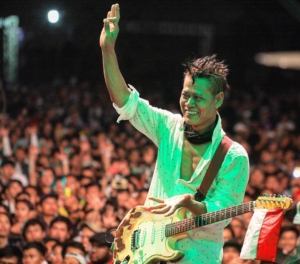
Why did you choose to play reggae? Is it because ‘witing tresno jalaran soko kulino?’ (Javanese proverb in his song means love grows through common encounters) or is there something else?
Yea, the interest to play reggae music is not merely due to the music but more to the philosophy of reggae itself. How it is aimed for struggle. Bob Marley used it to fight racial discrimination, to strive for peace and so on. To me personally that’s the most important thing. So it’s not just the music but the content that it carries about humanity.
Has your consciousness of the music grew gradually or right there at the beginning when you first encountered the music?
Yea, I used to be very fond of Bob Dylan during that time. A country musician who voiced and fought for human rights or something like that. But then I started to learn about reggae and of course Bob Marley which I found that there is something in common between these two figures and also myself. Because when I was still a street musician I did the same thing. So when I encountered reggae automatically I was really into it and kind of agreed to what it fights for.
Still relates to the previous question. There are some definitions and genealogy of reggae but what is reggae to you personally?
To me personally, reggae is my life. It is part of my struggle in this life. There is enjoyment, socio-political criticism and everything that deals with our daily life. So the music makes us more conscious. It is an autocritique and to criticize our situation. So reggae to me is a livelihood.
Alright, we can sense that in most of your songs. But how is your response to those who listen and come to your concert just for pleasure? They just dance to the music without paying much attention to the message you send through the lyrics?
So it’s like this, people tend to enjoy and embrace things based on what they see on the surface first, the outer skin first. And then it goes to the next layer, on and on until it reaches the deepening part. Let’s say in a classroom not everyone likes the same subject or understands what is being taught equally. Usually each one will have a different time to understand something. People come to concerts for parties and fun right? So that’s really O.K and no problem with that. But there’s a certain point where they would make a benchmark to go deeper. From the pleasure of the music into the lyric and soon learn something from it. That’s why music can also be an appeal. Just like in school, you don’t get it right if there’s too much pressure from your strict teacher. But things get much easier if the teacher can make you happy and relax, just like that. We cannot blame people who come to concerts to have fun. I think it’s supposed to be like that, no problem at all. I believe every music, every lyric, everything that we share in any sort of means definitely will reach those who may be concerned. Out of a thousand in a concert there’ll surely be a certain percent who get the message. And from there it will spread to their friends and so on and on. So my aim as a reggae musician is that this music can be an entertainment as well as an appeal about positivity and goodness.
You are identical with Indonesian reggae flavour through the infusion of ethnic elements (Java, Bali, Sumatra). A unique and authentic appropriation but how do you respond to those people (elders, or even essentialists, and nativists who are anti progression) who said the youths have gone astray by embracing reggae which is not part of our indigenous culture? And what is your suggestion or perhaps an encouragement to those young kids who probably are doing the same experiment as yours on reggae?
O.K actually there is no purity in music. It keeps evolving, it keeps becoming. The roots of modern music might go to blues and all sort of things if we talk about modern music. But it was influenced by and influences other music. It goes on and on until each of them becomes its own self. So why did I put those ethnics element? It is because I’m being realistic that I’m an Indonesian who have so many diversities in culture. Our parents don’t like if we talk and embrace foreign music is because they have their own understanding and being judgmental. Music usually came from a tradition just like in the old days during the time of “Sunan” (holy men who brought Islam to Java). One of them is Sunan Kalijaga who used Javanese traditional music as a means of teachings and preachings. Music was utilized to give moral lessons to the people. It is an appeal as I mentioned before. And when I hear foreign music, all of them are adaptable to the milieu and terrain of their place of origin. And so to me, why not? We have so many kinds of music in Indonesia like from Sumatra, Kalimantan, Papua, Bali, Java. I’d like to explore those traditional elements because music is always evolving. There’ll be no progress without exploration. Take for example is the genealogy of ‘Keroncong’ (Indonesian authentic popular music). How it first emerged and keep on evolving to become as it is today. How it reaches almost every part of the country even Papua. Every place has its own version and taste through the beat, notation and language. It goes on and on. And so is reggae which came from ska where ska was influenced by American boogie woogie and rock and roll and all sort of things. It was mixed with mento, music from the Caribbean, and from England. And out of those music came out reggae, just like that. So don’t be afraid to explore a music. I’m as a musician will keep on exploring music to make sure it won’t die in any decade or in any kind of fixed form. Because to me personally music keeps evolving and there’s no fixed form of any music. People can explore anything. If your parents don’t like it, that’s O.K anyway. Just show them the positivity you are doing through the music. In the context of the music, you can make an exploration while in the context of the lyrics you can deliver something which is inspiring and motivating to the people. All good musicians do the same thing. Bob Marley motivated his fellow Jamaicans with his ‘get up stand up, Bob Dylan criticised Vietnam war. There are still many more who spread positivity and goodness through music.
But have you ever been rejected or got any criticism about this before?
Always! There’s always a rejection. That’s why we need to stand firm on what we’re doing. I don’t care what people say. Oh your music has to be like this, it has to be like that, I just don’t care! Because to me there’s no fixed music. Oh you have to be like this, reggae has to be like Bob Marley, No! People are free to make their own exploration, they are free to choose their own imagination. Imagination is something beyond your head, right? I grab it and create something out of it. I explore, stir it up, record it and then present it to the public. Some might like it, others don’t and that’s normal [laughing]. Not all the people love it, that’s alright. Just like what Louis Amstrong (Red: and also Duke Ellington) said, there are only two kinds of music: good music and bad music. It depends on who would listen to it. Some say good, some say bad. But exploration is a must especially to people like me who chose music as a call in their life. It means that at the end music has to bring goodness for other people. It’s not only to entertain but also to educate people. Perhaps to lift up their spirit of life, not the other way around [smiling].
You are given some titles by your fans like the Father of Indonesian reggae, President of Indonesian reggae and the living legend. What do you say about this?
[laughing] I’ve answered the same questions so many times that it really depends on the people or those who know Tony Q Rastafara. It means that those titles are based on what they think of me and not from me personally. I never demand any of those titles, but it’s up to the people. Because to me personally, my name is Tony Waluyo Sukmoasih, in music they call me Tony Q Rastafara, right? [laughing]. So if the people give me any title, it’s up to them. I can’t say yes nor forbid them. Just let it flow. The most important thing is everybody can be happy, right? [laughing].
Just a bit of a flashback on how Rastafara was formed and what is the difference between Tony in Rastafara and Tony in his solo career? Musically or lyrically maybe?
Rastafara was formed in 1994 and in 1995 we signed a contract with Musica Records (Red:Hemagita). In 1996 we released the first album ‘Rambut Gimbal.’ At first we were a band for a café. Yes, we start from there. And then I had a plan to do recording because before that I’d already had a record when I was still a street musician. And I came to Jakarta for that intention, to make a record. So the café is just a stepping stone to start my music career. I gave the name Rastafara to the band and started to make a demo tape. I was the only one who’s ready to do that. I persuaded some friends to join me. Like a talent scout I searched for the personnel even from the earlier band that I formed in 1989. It’s called ‘Roots Rock Reggae’ band. But the band disbanded and then I formed new ones until we had Rastafara. Rastafara came from a long journey of several bands before. And those personnel in Rastafara were quite new to reggae at that time.
So it was you that introduced reggae to them?
Yes indeed. When I formed the band almost everyone didn’t know reggae. Even from ‘Roots Rock Reggae,’ ‘Exodus’ to ‘Rastafara.’ All of them didn’t know reggae. So I persuaded them [laughing] to play reggae. What is reggae? I introduced it to them. And from that process they began to learn. And maybe because I had started playing reggae since 1989 then automatically it was me the most experienced one among them. And when we started Rastafara in 1994 I was more than ready with some original songs to be put in that first album.
What is the difference between Tony in Rastafara and Tony in his solo career?
The main difference is that in Rastafara we used the band’s name. After shifting from 1999 to 2000 the band was disbanded. It was me who formed the band and it was me who disbanded it [laughing]. And then here comes the solo. In my solo I did the first album ‘Damai Dengan Cinta’ (Peace With Love) but the players are still those from Rastafara [laughing].
But did these ex-personnel of Rastafara have any objection playing with you in your solo?
Well it was here that I’m tested as a friend and as a professional and so were they. If I gave them a job after we disbanded it was because of professionality. I asked them “Do you guys have any objection working for my solo album?” I didn’t interfere with the financial business. There’s someone who handled it. Finally, I had my solo album even though the players were still Rastafara [laughing]. Because I still appreciate them.
Many of your songs are poetic and philosophical. Do you love reading literature? Who is your favourite writer?
Well, there are plenty [laughing]. Reading is my habit. I’m also reading right now. There are many literary works that I have read but I can hardly remember the writers. I have many friends who are writers in Bulungan, South Jakarta. Like Radhar Panca Dahana and Mas Aji. I’d like to read poems by Amin Kamil, Dharmono, and Gus Mus. I’ve read most of them.
In almost every live performance you would add some more new musical arrangement to your songs. What inspired you in doing that? Is it your own idea or is it based on the rehearsal before live?
To be honest, it’s been almost 10 years. I never had any single rehearsal for a live [laughing]. I only rehearsed for live TV, but usually for a soundcheck and not a serious one. So in the rehearsal we met and talked, it’s like “hey do you know this song?” I showed them the keys and we jammed, that’s it. The same thing also for recordings. Not every single man in the band knew what song to be played. So I just rang them up, yow let’s do a recording for a new song tomorrow, who’s ready first? So it’s just called them on the phone to come to the studio and record a new song. They came in, listened to it for a bid then played [laughing].
But in doing the music arrangement did you discuss it with the other members of the band? With Yus Panigoro maybe?
Yes, we discussed it but only to give some inputs on what the song is about, what is the mood and things like that. So here is the situation and I need it to sound like this, let’s find it. Take for example the keyboard player, he would roam for sound that perhaps I would agree with or maybe he would come with his own idea so I would listen to it. If I agree then we will use it, just like that. It’s very effective. So, we worked together.
You have a strong vocal character and are very charismatic. Is there any special treatment to keep the power and energy of your voice? By drinking herbs for example? [laughing]
There’s no special treatment for my voice. I’m not a singer for American or Indonesian Idol. I just voice what’s in my heart. So if you ask me about my voice, it’s just like that. You can hear it in my songs. If you like it go on but if you don’t, that’s O.K [laughing].
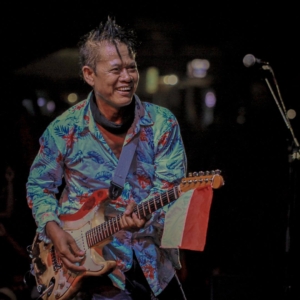
Collaboration has been a trend lately. If you are asked to choose any of the local and international musicians as your collaborator, who will you choose?
I’ve made a local collaboration in my album ‘Menjemput Mimpi’ with Roy Jeconiah, Nugie, Candil, Vicky “Burgerkill” and Melanie Subono. And for international collaboration I have plenty of names whom I want to collaborate with. But I’m a realistic person. That wish can prevail in the context that I really have a feeling for it or a real urge inside then I’ll go for it. But for the meantime I try to keep that as my dreams.
Can you name them?
Well there are plenty indeed. But perhaps from the Marleys and maybe Bono (U2). Who knows? [laughing]
Is there any criteria for those who collaborate with you?
Firstly, based on character. Secondly, they don’t have any contract [laughing]. Yes, because there were some who had contracts at that time so they couldn’t join. I made contact with them personally and not professionally. I used a more personal approach so I called them personally to talk about the project. So there they are in that collaboration album.
In this digital era, the development of Jamaican music in Indonesia is massive and the scenester presents a fresher attraction like the sound system or DJ and MC which is commonly known as dub. What do you think of this? And are you interested in making collaboration with any of these dub scenesters if they ask you?
To me personally it is interesting. I mean there are many people who have evolved their music, the attitude of their music, to create something as they pleased. I’m interested to work with anyone who wants to collaborate with me but of course I always consider the lyrics that I’m going to sing. I must consider it first. Because in the past few years before the pandemic I was offered some collaborations but when I checked the lyrics I wasn’t interested. So if the lyrics are good and inline with my vision and mission then I’ll do it. But if not, perhaps they should go for someone else or think of another option.
What about if someone who offered you is a producer? So he just makes you music and leaves the lyrics a hundred percent on you?
Collaboration can be anything indeed. Hopefully I can do it. But the problem is, there’s a certain condition that determines if we can really fit into each other or not. But I always believe nothing is a coincidence [laughing].
If you happen to play another kind of music, what kind of music will you choose? And who is your favourite musician or band other than reggae?
I’ll choose to play rock music because I have a background in that music. Blues and rock. When I was still in school I used to listen to that kind of music. Things like The Beatles, Rolling Stones, Led Zeppelin, and Genesis. I even listened to and played metal [laughing].
Do you still remember what metal music you used to listen to?
Metallica, Sepultura, Megadeth and people like Ronnie James Dio. And also Led Zeppelin and Kansas. I still love to listen to that music today. Oh there are plenty of them [laughing].
The intermingling between reggae culture from Jamaica and Tony Waluyo Sukmoasih gives a prominent Indonesian touch. Can we say that the Indonesian flavor of reggae that we have today started from you?
I cannot say so. Personally I cannot agree or disagree. If I agree there’ll be those who don’t, so just let them people decide.
You said that reggae is supposed to equate the frequency of humanity. We no longer talk about racial discrimination, never let injustice grow, no more religious discrimination and so on. Simple question: are you a religious person?
[laughing] what do you mean by saying religious? What religion is to you?
We mean religion is to have a close relationship to God or do what He commands?
If people ask me my religion, I would say my religion is reggae [laughing]. The most important thing is people have to show what they believe through their deeds, right? So If people have any religion, I’m really sure it is all for good and that’s it!
In part of the collaboration you said that at least one has to have the same vision as you to collaborate. It means that you do believe in collectivity, don’t you?
Oh yes I do. How we learn to appreciate anyone even though we are a selfish being. I’m a selfish person but not a brutal one. It means I’m ready to collaborate provided that we respect one another, you know what I mean? I understand them and so do they understand me. [laughing].
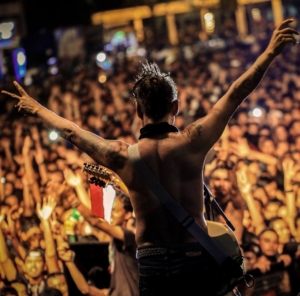
From what we know you are so nice to your fans. Even though they’re not close enough to you, you always accommodate them. What are the fans to you throughout your career? Their biggest role?
Their biggest role is, you know I have a principle in my life that the more friends you have, the more fun you’ll get. I’m a person who likes to make friends everywhere. It became one of my visions. How good it is if we have a lot of friends. Almost all the fans who’ve been close to me become my friends. The more friends I have, the happier I’ll become, that’s the principle. A little bit of a flashback, I used to play in a Café. I would mingle with every guest who came to see our performance. I would introduce myself and we talked. Another day they would come again and bring more friends, on and on until I have many fans. They give me inspiration to write my songs. I know exactly the condition of the lower- class people because I hang out with them. I know exactly their grief and sorrow because I’ve been there. I used to live in the street, counting coins by the shop porch. So Fans really mean a lot to me. Really precious to me.
It sounds like your song “Om Funky” (Uncle Funky). Is it a real story from one of your fans?
No, it’s just my imagination [laughing]. But if it happens in real life that’s only a coincidence. But that’s O.K if it sounds like someone else’s story then we can dedicate the song to him [laughing]. So in that song I imagine how good it is to have a person like Uncle Funky everywhere because he has a good character.
There’s a saying that a writer voices what’s in his mind or what he’s thinking. In your works from the early days until today, what is the most memorable song coming out from your fruitful thought?
I treat almost every song as my own child, so there is no stepchild [laughing]. They are all my children and everyone is special.
We’d like to imagine if one day we can make a dub album from your songs. What shall we do to make it come true?
To make it happen you have to do it right away [laughing]. If you don’t do it, how can it happen?
To continue that question do you still have the vocal data, minus one or your acapella?
Well it’s very sad though. Sometimes it happens as time goes by rapidly and we cannot avoid it. I lost some of the data, especially from my earlier albums. I lost the data of ‘Salam Damai,’ ‘Anak Kampung,’ and ‘Rambut Gimbal.’ The one that I still have is the album ‘Presiden.’ And also I re-released ‘Rambut Gimbal’ 5 or 6 years ago so I have the new data from that album.
Putumayo is an interesting thing to talk about and it gives such a good motivation for younger ‘reggaeneration’ in Indonesia. So originality in Indonesian reggae should be started from where? Any suggestions for us?
Start from where? Start from today, this very time you guys begin to write, to create [laughing] if you don’t do it, you won’t have songs
So it’s better to start doing it now, grab our guitar, keyboard or anything and start writing?
Yes indeed. Once you’ve got an idea, write it down. In your smartphone or in your book, anything. It’s up to you, but the most important thing is you do it.
You are a person who can be at a 5 star hotel humbly and experience life in the street gratefully. How do you manage yourself in enjoying life?
It’s very simple. Don’t act! I was in a theatre for two years. Theatrical acting can be very very exhausting, I can’t imagine if we do that in real life. You know what I mean? [laughing]. The most important thing is don’t act and then you can be anywhere without any burden.
Reggae is massive in Indonesia today. You have had a positive response to that before. But we want to hear your criticism about it. Is there anything that you feel is not suitable as what you’ve expected? Your criticism is for the improvement of the music as well as for the young generation to come.
You know, actually we can’t criticize people based on the ability they possess. But perhaps personally I have my point of view, not a critic. Based on my point of view there are many reggae bands today which tend to act and behave like pop bands. They follow the path of popular music. But nothing’s wrong with that, this is just my point of view. It means that massively those reggae bands want to gain instant popularity and things like that. But That’s O.K since everyone has their own process to create something. I can understand that, just let it flow. Because I just can’t make a requirement or criticize everything. Oh you can’t do this, you can’t do that, No ! It’s their rights, their own capability to do anything. So to me personally just let it flow. Reggae should be like this, reggae should be like that, no! It doesn’t have to be like this and like that [laughing]
So you don’t have to wear locks to be reggae?
[Laughing]
Kultur is going to celebrate its first anniversary this month. We’d like to hear your advice or suggestion for the betterment of Kultur as an alternative media for sharing information about Jamaican music in Indonesia.
Well it depends on your vision and mission right? But the most important thing is consistency and intensity and don’t expect too much. It means that the important thing is you guys are happy with what you are doing. Because if you are happy and pleased then it will bring a good impact.
Because to be happy is the medicine right?
Yes, If you are happy, there’ll be a better bonus and you’ll be much happier. Do something which you think is the best that you can do and keep moving forward [laughing]
(Yedi)

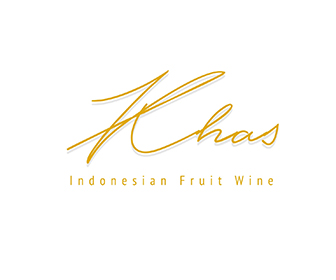
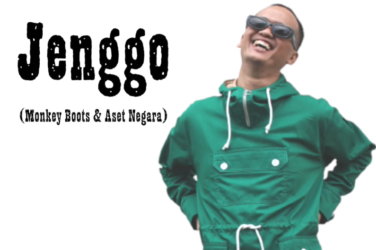
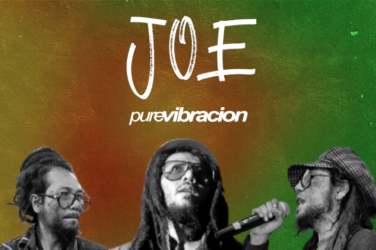

Show Comments